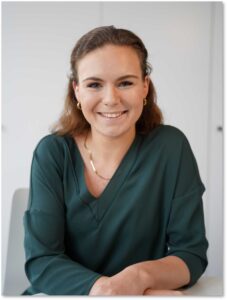The FH Münster University of Applied Sciences (FH Münster), founded in 1971 is a modern, achievement-oriented university highly respected across Europe. With more than 15,000 students, it is one of the most significant and prominent institutions of its kind in Germany. Its more than 1,200 staff members, including more than 290 teaching staff and over 100 courses of study, provide its students with a wide range of high-quality education, greatly benefiting the local and national economy.

The FH Münster prides itself on producing students of the highest calibre, prepared once they leave university to enter the world of work and become instrumental in many organisations. With a multidisciplinary approach, it qualifies people for life in the global market. It imparts an adaptive understanding of the changing world, especially regarding societal and technological changes and challenges and a practice-oriented curriculum.
The strong ties between education and industry enable FH Münster to be proactive in its education curriculum, adapting to the needs of the sectors by preparing students for the working world in a natural and impactful way.
Residing within FH Münster, the Science-to-Business Marketing Research Centre (S2BMRC) is recognised worldwide for its approach to Science-to-Business Marketing and for developing more entrepreneurial and engaged universities. The centre has profound knowledge and expertise in developing models and tools in digital transformation, technology transfer, innovation, entrepreneurship, and university-business-society cooperation. The S2BMRC is the academic driving force behind the development of entrepreneurship and innovation within FH Münster. As such, the S2BMRC, as a scientific-analytical unit, drives knowledge generation to push new insights and methods into the curricula.

Germany is currently Europe’s top leader in food production, and the F&B is ranked as the 4th largest industry sector within the country. SMEs in particular dominate the German F&B industry and add up to over 6.000 companies in total. Digital transformation is considered a current major challenge for food producers. However, in 2021, the digital intensity of German SMEs scored slightly below the average in Europe. The Münsterland region boasts multiple SMEs along the F&B value chain, which can benefit from support in their digital transformation endeavours.
FH Münster leads the DIGIFABS consortium and formally represents the alliance before the EACEA. As a project leader, they take the overall management, legal and financial responsibility for the project activities and deliverables with the support of their respective work package leaders.
The team working on DIGIFABS at FH Münster consists of Prof. Dr. Thorsten Kliewe, Judith Helmer, and Dominik Lappenküper. Thorsten is the Managing Director of the Science-to-Business Marketing Research Centre and Professor of Innovation Management and Business Development. Judith and Dominik are both Research Associates and PhD Candidates. All three have worked on previous research projects in the field of digital transformation, innovation, and university-business collaboration and bring enthusiasm and insights to the consortium. Thorsten will take the role of manager in DIGIFABS, Judith will be involved as a researcher, and Dominik will be active as project coordinator.

The Science-to-Business Marketing Research Centre’s vision is to increase the collaboration and engagement between universities, industry, and society. We do this by creating and disseminating university-business cooperation knowledge to every organisation working with us (and beyond). In today’s world of rapid digital and technological change, we believe that the role of universities in the overall transformation of industry and society is becoming ever more important. We hope that the DIGIFABS project can play a pivotal role in further increasing university-business cooperation knowledge in the F&B sector and beyond and highlight the value of collaboration.
